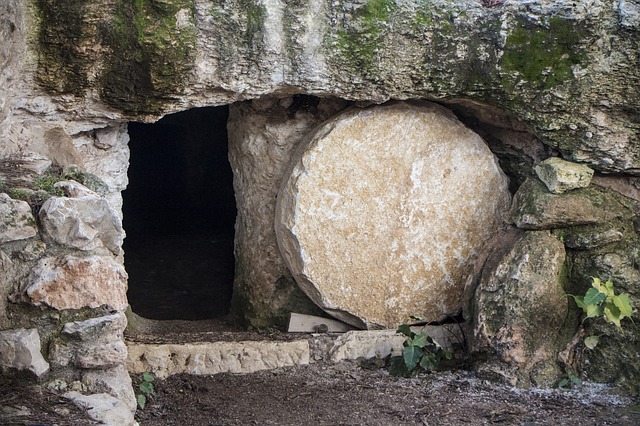
“They exchanged the glory of God for the image of an ox that eats grass.” – Psalm 106:20
Similar Value?
The Merriam Webster dictionary defines the word exchange as such, “An occurrence in which people give things of similar value to each other.” Imagine how you would feel if you opened your safe and discovered an item(s) of great value was missing. Perhaps a family heirloom. Perhaps an item of great sentimental value. Maybe your “love” letters from years ago. Imagine your disappointment to learn that your child took this item from the safe and traded it at school for a stick of gum or perhaps a frog. What seemed like a good exchange to your child would be laughable to you (once you stopped crying). It would certainly be a teachable moment about trading (and stealing). You wouldn’t want your child to repeat such a foolish exchange. Nor does God want His children to. We can forgive a child for a foolish act done out of ignorance, but what excuse do we have as adults to make an even more foolish exchange on a regular basis?
Jealous God
El Qanna. In Exodus chapter 20 verse 4, God tells the Israelites they are not to make idols. In verse 5, he continues by telling the Israelites they are not to worship or bow down to idols because He is El Qanna. A jealous God. God is jealous for His reputation. He is jealous for His name. Exodus 34:14 says, “For you shall worship no other god, for the LORD, whose name is Jealous, is a jealous God.” God alone is to be worshiped. He alone is worthy. In Psalm 106 from which today’s passage comes, the Psalmist asks the question, “Who can utter the mighty deeds of the LORD, or declare all His praise” (verse 2)? Despite the fact that God miraculously delivered the Israelites from Egypt and parted the Red Sea for them to cross on dry ground, the Israelites “forgot God’s works” (verse 13) and then “forgot God, their Savior” (verse 21). It is difficult to utter the mighty deeds of the LORD if we are forgetful them. It is easy to make a bad exchange if we are ignorant of worth. We need to hold in higher esteem the glory of God.
Worthless Idols
When held as slaves in Egypt, the Israelites were introduced to Apis, an idol in the form of a bull. When Moses and Aaron arrived, the Israelites were “introduced” to Yahweh. It was His power that performed the miracles. It was His power that parted the Red Sea. It was His hand that wrote the Ten Commandments. The Pillar of Fire, the manna, and the quail, all were of God. Apis, however, was powerless. Yet when Moses spends time with God on a mountain, the Israelites “resurrect” Apis. In our self-righteousness, we ask, how? In our self-centeredness, we do the same thing. Like the foolish child we take what belongs to God and give it to Apis. Not an ox to feed our family. Not an ox to pull a plow. The image of an ox that eats grass. What a foolish exchange. We might be further ahead with a stick of gum or a frog.
Costly Ignorance
Yesterday we looked at the relationship between the glory of God and His works. In His works, God manifests His character. Today’s text shows us the danger of forgetting God’s works. Forgetting His works can lead to forgetting Him. Forgetting God results in a foolish exchange. Ignorance may be an excuse for a child, but not for us. We have the Living Word. We have the indwelling Spirit. We have access to the Throne. We have a testimony. We have no excuse to “forget” the works of God. We have no justification to “forget” God. I believe the best way to avoid making a bad exchange like the Israelites did is to practice what the Psalmist asks rhetorically in verse 2, “Who can utter the mighty deeds of the LORD, or declare all His praise?” A child of God can. A child of God must.
Wise Investments
Nothing is more “valuable” than the glory of God. God is jealous for His name and we should be too. We need to spend time in the Word getting to know God more intimately. We need to spend time in prayer and being still before God. We need to be sensitive to the moving of the Spirit and not quench Him. We need to fellowship with other Believers and sharpen one another as iron sharpens iron. We need to be more eternally focused and not allow the world to draw us back to Apis. We need to utter the mighty works of God, beginning with the cross. We need to declare His praise.
Some day we will be gathered in Heaven. The streets will be pure gold. The foundations will be precious jewels. We will be surrounded by a wall of jasper. As valuable as these things may be, they will seem worthless compared to the glory of God, whose presence will outshine them all. If the building materials of heaven cannot compare to the glory of God, certainly nothing on earth can. If there is nothing of similar value, why are we so quick to exchange it?
Don’t be foolish. Don’t steal from God. Don’t exchange His glory for the image of an ox. Instead of imitating the Israelites, may we have the passion of Moses.
“Please show me your glory.” – Exodus 33:18

 The Father Rejected
The Father Rejected
 “When the Philistines captured the ark of God, they brought it from Ebenezer to Ashdod. Then the Philistines took the ark of God and brought it into the house of Dagon and set it up beside Dagon. And when the people of Ashdod rose early the next day, behold, Dagon had fallen face downward on the ground before the ark of the Lord. So they took Dagon and put him back in his place. But when they rose early on the next morning, behold, Dagon had fallen face downward on the ground before the ark of the Lord, and the head of Dagon and both his hands were lying cut off on the threshold. Only the trunk of Dagon was left to him.” -1 Samuel 5:1-5.
“When the Philistines captured the ark of God, they brought it from Ebenezer to Ashdod. Then the Philistines took the ark of God and brought it into the house of Dagon and set it up beside Dagon. And when the people of Ashdod rose early the next day, behold, Dagon had fallen face downward on the ground before the ark of the Lord. So they took Dagon and put him back in his place. But when they rose early on the next morning, behold, Dagon had fallen face downward on the ground before the ark of the Lord, and the head of Dagon and both his hands were lying cut off on the threshold. Only the trunk of Dagon was left to him.” -1 Samuel 5:1-5.